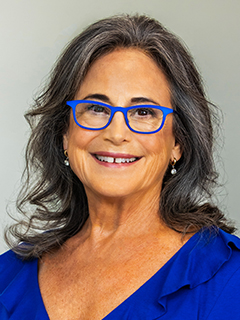HOW CAN WE HELP YOU? Call 1-800-TRY-CHOP
In This Section
‘My Passion to Support Pediatric Nursing Science’: Q&A With ‘Living Legend’ Martha A.Q. Curley
Editor’s Note: The American Academy of Nursing designated nurse leader Martha A.Q. Curley, PhD, RN, FAAN, a Living Legend, a professional distinction awarded to an elite group of nurses recognized for their extraordinary contributions to the nursing profession and healthcare worldwide.
Dr. Curley, who serves as the Ruth M. Colket Endowed Chair in Pediatric Nursing Science at Children’s Hospital of Philadelphia and a professor of Nursing at the University of Pennsylvania School of Nursing, is a pediatric nurse scientist internationally known for her transformative critical care research and visionary leadership, that have advanced the care of children and families and blazed a new path for nursing.
Dr. Curley’s substantial achievements as a nurse leader, researcher, prolific author, educator, advocate, and mentor have improved healthcare standards, critical care delivery across disciplines, and patient health outcomes globally. We met with Dr. Curley to hear about her contributions that have strengthened nursing science, called attention to the leadership role of the nurse in healthcare, and united health professionals throughout the world.
What led you to pediatric nursing and pediatric nursing science?
When I began my career as a pediatric nurse, there was little evidence to inform best practices for the care of infants and children who were critically ill. As I transitioned from bedside nurse to unit-based educator to clinical nurse specialist, we still had so many unanswered questions. I became a pediatric nurse scientist to address these questions through research and clinical trials and improve the care of children and families.
What are some of the professional accomplishments that hold the most meaning for you?
I am excited to provide leadership in pediatric clinical research and shine a light on the unique contributions of nurses. The role of the nurse in optimizing patient health and recovery, advancing healthcare delivery, and discovering new evidence through research is essential and must be supported at every level. Some of my proudest moments are when mentees disseminate their research findings to the healthcare community.
I’m also proud that my research addressed the unmet needs of hospitalized children and delivered pediatric-validated assessment tools and nurse-led interventions that established new standards of care. I pioneered the development of the Synergy nursing model, which called attention to nursing’s pivotal role in optimizing patient outcomes and serves as the foundation for nursing standards in critical care certification, professional practice, education, and more.
What led you to CHOP and Penn Nursing?
It was my passion to support pediatric nursing science and mentor doctorally prepared nurse scientists dedicated to a program of pediatric research. It’s rare to find a premiere children’s hospital that shares a campus with a renowned research-intensive university and school of nursing. It was the perfect opportunity for me, and I’m so proud of the important work we’re accomplishing together to drive improvements in children and family health.
What do you see as the future for nursing?
Nursing’s future includes a continued alignment with patients and families. Nurses have a unique and synergistic relationship with patients and families that facilitates and strengthens both patient and family health and healing. We need to expand nursing science to not only support best practices, but also to examine the models of care that focus on the relationship between unique patient populations and their specific needs and nursing expertise and differentiated practice.
What advice do you have for nurses and nurse scientists practicing today?
Find your passion and invest in education and training that will prepare you for future career opportunities and advancement. Explore opportunities beyond your comfort zone, field, and specialty. Also, find a mentor who is truly interested in you and encourages your development in the field. Sometimes, our best mentors and advocates can be found outside of our discipline or geographical location.
You’ve been designated as a Living Legend by the American Academy of Nursing. Can you describe what it means to you?
I’m honored to have been nominated and selected for this designation by nurses whose leadership and contributions have advanced both nursing and healthcare. To receive this recognition for my life’s work reflects the generosity of the parents and children who participated in our clinical trials and my colleagues who taught me so much. The designation brings personal joy for a career well-lived!



